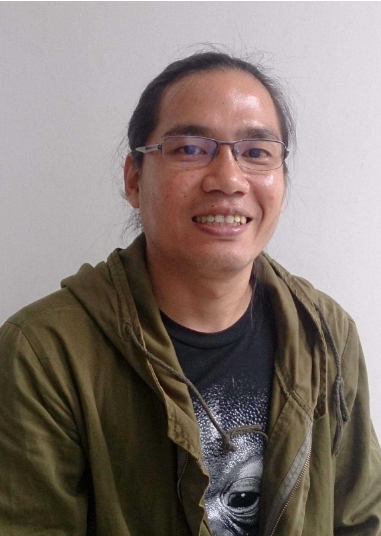Adi Marsiela Q&A IBT
We had a chance to sit down with Adi Marsiela, coordinator at CekFakt for a conversation about disinformation, the upcoming Indonesian elections and expected challenges.

In the context of Indonesia's upcoming election, how at risk do you think Indonesia's democratic process is?
The democratic process in Indonesia has been damaged both from online disinformation campaigns and the offline actions of our elected leaders. For example, when the Constitutional Court granted the request for participation by citizens under 40 years of age as presidential or vice-presidential candidates. This decision paved the way for President Joko Widodo's first son to compete in the 2024 election as vice president candidate with Prabowo Subianto.
Early in the second week of February 2024, the Election Management Honorary Council determined that the chairman and members of the General Election Commission had committed ethical violations by accepting Gibran Rakabuming Raka 's nomination as vice presidential candidate.
Can you elaborate on the specific challenges your team in Indonesia has been facing regarding identifying inauthentic coordinated activity on social media platforms, and what strategies should be adopted to enhance the detection and prevention of such manipulation?
The specific challenge is finding valid information and producing it into reliable fact-checking content that can be shared with the public as quickly as possible. Distribution of hoaxes moves faster than fact-checking.
For this process therefore to be successful, fact checkers must collaborate in sharing their findings. This challenge includies the new field of hoaxes that have been produced using AI. We at CekFakta.com, debunk content and then broadcast it on CekFakta.com which can be republished.
Another strategy that has been implemented since 2023 is to increase pre-bunking content (teaching individuals how to spot those false claims before encountering them) to be distributed. We have been working on pre-bunking content campaigns by analyzing debunked content which has been published on our platform.
This then enables us to identify the type of disinformation methods that were used for hoaxes, and to understand the characteristics of accounts that usually spread disinformation. As part of our pre-bunking, we teach audiences how to spot similar content, with the aim of stopping the distribution of the disinformation early.
Russian influence in electoral processes has garnered attention worldwide. From your perspective, what interest would Russia have in interfering in the upcoming election?
In general, Indonesian people tend to support Russia on the issue of war with Ukraine. This happens because they view Russia as one of the countries that has a very significant increase in Muslim adherents in the world. Reflecting on this background, it is not surprising that Defense Minister Prabowo Subianto (before he declared himself a presidential candidate) attempted to offer a peaceful resolution between Russia and Ukraine with a ceasefire, troop withdrawal and referendum. Prabowo perhaps understood the importance of attracting sympathy, and ultimately support, ahead of his presidential candidacy.
However, in my perspective, Russia has a much broader interest in gaining the public's support in Indonesia, in the context of their war with Ukraine: Russian geopolitical interests. Russia of course has trade interests with Indonesia which have become even more important to them following Western sanctions. But Indonesia's traditional position of geopolitical non-alignment means it is unlikely to be taking sides any time soon.
In your research, have you observed patterns or trends indicating the exploitation of cultural or societal divisions to manipulate public opinion on social media?
In the 2014 and 2019 elections, online exploitation of divisions in society definitely occurred. In these two elections, supporters of the two presidential candidates, Joko Widodo and Prabowo Subianto were very divided and the atmosphere felt very polarized. So far in this election, this condition has not yet been seen.
However, if we look at the issue of Rohingya refugees landing in the Sumatra region throughout 2023, there is certainly an array of evidence which shows that there are bad actors manipulating public opinion online against the Rohingya ethnic group.
As an specialist and fact-checker, how do you propose enhancing digital literacy among Indonesian citizens to empower them in discerning credible information from misinformation and propaganda, fostering a more informed electorate?
CekFakta and its coalition have already identified a variety of problems and possible solutions. We are working to increase system-based digital literacy, collaborating with schools, universities and the Ministry of Education and Culture to develop media literacy.
We are also expanding our network by building awareness about the importance of identifying hoaxes, including propaganda and incitement by collaborating with various communities ranging from religious groups, women, indigenous peoples, youth, students, scouts, academics, vulnerable groups such as LGBTQ and people with disabilities.
Through this, we will disseminate the debunking content, while at the same time providing media literacy training and 'pre-bunking tools' for communities. We are also providing information and online modules for the general public on our platform.
© Copyright IBTimes 2025. All rights reserved.




















